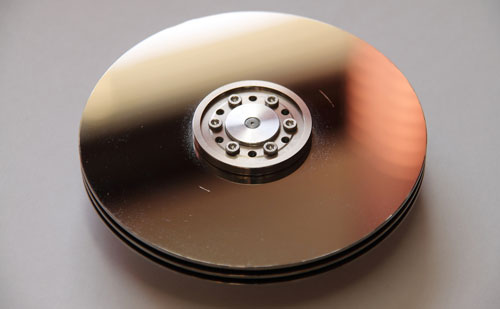
Solid-state drives (SSDs) using flash memory technology will largely have replaced magnetic hard drives within the next four years as prices of the components tumble.
That’s the view of Chad Sakac, vice-president for the VMWare Technology Alliance at business-focused IT company EMC, who says that by 2015 there will be “very little room in the enterprise storage market for magnetic media of any type”.
“In the same way that magnetic disk obsoleted tape for backup, solid state is now obsoleting magnetic media — spinning rust — in primary storage, what people use to store transactional data.”
Sakac predicts the same phenomenon will occur in the consumer market, with most new laptops and desktop computers shipping with SSDs instead of magnetic hard drives within the next few years.
Already, consumer notebooks like Apple’s MacBook Air and Sony’s Vaio Z Series machines ship standard with SSDs. They allow manufacturers to build lighter computers in smaller form factors that run faster and use less power.

The volume of SSDs shipped is starting to skyrocket, which means prices are plummeting, Sakac says. “Today, you can get a 500GB consumer SSD for about US$1 000. A year ago, that would have got you a 128GB disk.”
At the same time, manufacturers of magnetic hard drives may find themselves running up against the laws of physics soon as they continue increasing surface or areal densities of magnetic disks.
It may be difficult for companies to build hard drives with capacities larger than 6TB, according to Sakac, unless there is a disruptive technology soon that allows development to continue. “There may be a technology miracle that occurs — it may or may not occur.”
In SSDs, on the other hand, Sakac says there is a clear trajectory to far higher capacities than those being manufactured today. And prices will continue falling off a cliff.
In companies’ computer rooms, magnetic hard disks will be used mainly for backup, where speed is arguably less important than on operational systems. Live production systems will use SSD instead, he predicts.
“In our talks with Samsung, Intel and Micron … it’s very clear that they will rapidly get to the point where the unit capacity cost, the cost-per-gigabyte, will approach the same level as magnetic disk,” Sakac says. “Prices are falling significantly faster than for magnetic media.” — Duncan McLeod, TechCentral
- Subscribe to our free daily newsletter
- Follow us on Twitter or on Facebook




